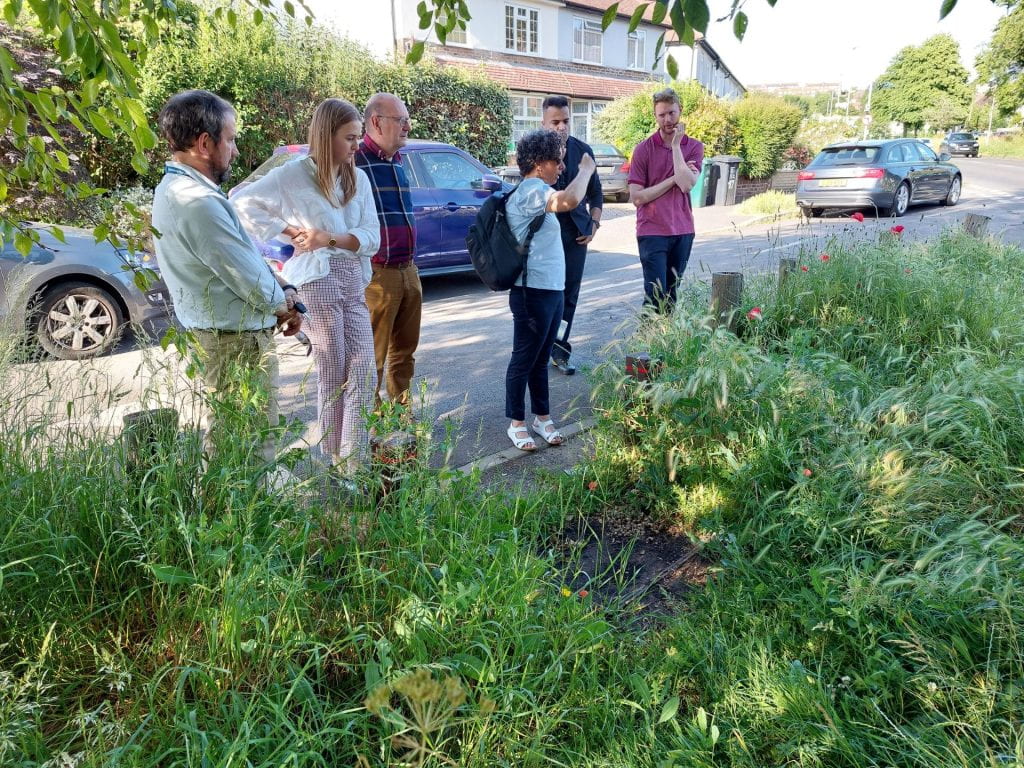It’s not often these days that you hear people say ‘money is not the problem’, but that was one of the more surprising contributions at a recent Planning for Water conference hosted by the Centre for Aquatic Environments and the Royal Town Planning Institute SE region at the University.
The 19th June conference brought together almost 70 town planners, engineers, developers, academics, charities, water companies and government officials to discuss solutions to some of the current challenges that water quality, water scarcity, climate change and the biodiversity crisis present to the building sector.
Topics included:
– how Local Nature Recovery Strategies can be used to identify priorities for aquatic habitat and species protection and enhancement,
– how water quality concerns are delaying development in some parts of England, and the practical approaches being developed in South Hampshire (led by one of our town planning graduates, Simon Kennedy) to identify compensatory land to be managed for nature conservation by the local Wildlife Trust,
– how Sustainable Drainage Systems (SuDS) can reduce flood risk, clean water and increase biodiversity, including a scheme near to the University in Moulsecoomb which one of our students, Polly Walters, is writing her MRes about,
– how research into investing in coastal wetlands in the Solent and Sussex Bay is helping to build resilience to climate change, enhance biodiversity and bring social and economic prosperity (and provide an opportunity for private financing of biodiversity credits (that unproblematic money, ready for investment), and
– how water scarcity is affecting aquatic wildlife and how water neutrality can be achieved through tighter water efficiency and offsetting schemes.
The day finished with a site visit to some innovative SuDS schemes in Brighton, led by The Aquifer Partnership and officers of Brighton and Hove City Council and a networking session at the Moulsecoomb Forest Garden.
Co-organiser of the Conference, Andrew Coleman, is a Senior Lecturer on the MSc Town Planning course, a Board member of the Centre for Aquatic Environments and a member of the RTPI SE Activities Committee. He said: ‘I first had this idea to bring together practitioners and researchers a couple of years ago. Since then, water has become a much more significant planning issue which will only get worse with climate change. Planners have got to get more water-wise and this conference really helped to highlight some of the solutions can be achieved, with more collaboration – which was the most frequently mentioned theme. It was also fantastic to see so many of our MSc and Chartered Degree Apprentice graduates taking an active role in the conference as presenters and attendees.’
Prof Chris Joyce, Director of the Centre for Aquatic Environments said, ‘It is unheard of to hear the quote “money isn’t the problem” at any meeting but we heard it here! It does seem that we are at a step change in awareness and support for the wise use and management of water resources. The meeting has highlighted the great opportunities for better water planning, but there are still challenges. In particular, the discussions repeatedly focused on water scarcity and efficiency, the need to scale up, skills shortages in the water and planning industries, and a long term approach to water management. There are numerous projects, initiatives, organisations, and people involved in water planning, in south east England and nationally, with a raft of new strategies and policies. These reflect the urgency of the water shortage situation and its complexity, such that a partnership approach is needed. It is hoped that this meeting initiated new collaborations and nourished existing partnerships, so that the multiple benefits of sustainable water planning and management can be delivered.’
Caroline Carney, a MSc Town Planning student, volunteered as a ‘student ambassador’ at the Conference and said, ‘ The conference was a fantastic example of how deeply intertwined the University of Brighton is with the local planning community. Volunteering as a student helper provided an opportunity to complement my studies on the MSc Town Planning course, absorbing knowledge and listening to speakers deliver important messages about highly relevant water issues. I was also incredibly grateful to speak with a number of interesting, encouraging professionals during the breaks; to hear about their work and potential employment opportunities. ‘



Published by